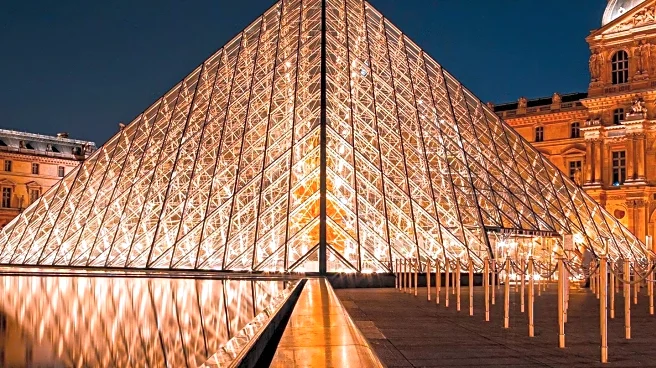What's Happening?
A recent heist at the Louvre Museum in Paris has exposed significant security vulnerabilities, prompting global museums to reassess their security measures. The theft involved a team of robbers who stole
jewels valued at 88 million euros in broad daylight. A leaked report from France's supreme audit body highlighted chronic under-investment in the museum's information systems, including a simplistic password for the surveillance system. The incident has led to arrests and charges against several suspects.
Why It's Important?
The Louvre heist underscores the need for improved security protocols at major cultural institutions worldwide. As museums house priceless artifacts, they are prime targets for theft, necessitating robust security systems to protect their collections. The incident has sparked discussions about the adequacy of current security measures and the potential for similar crimes at other museums. Ensuring the safety of cultural heritage is crucial for preserving history and maintaining public trust in these institutions.
What's Next?
Museums globally may consider upgrading their security systems and protocols to prevent similar incidents. The Louvre's response to the heist could set a precedent for other institutions, potentially leading to increased investment in security technology and personnel. Additionally, the incident may prompt international collaboration among museums to share best practices and enhance collective security efforts.










